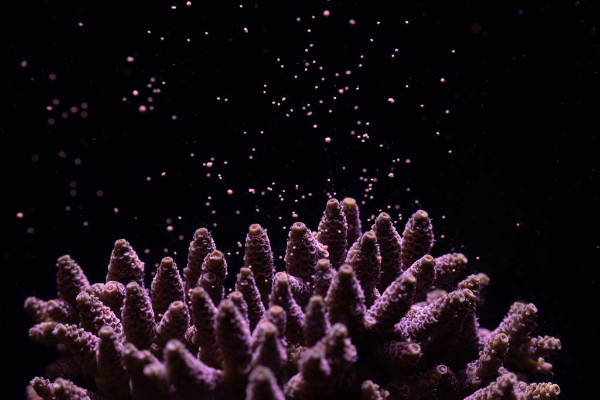A pioneering project has been launched in Seychelles to restore and protect the country’s coral reefs from the worsening impacts of climate change.
The initiative brings together Nature Seychelles, Coral Spawning Lab (CSL), and Canon EMEA in what is being hailed as a first-of-its-kind effort in the Western Indian Ocean.
At the heart of the project is the development of a land-based coral breeding facility, supported by Canon’s investment and advanced imaging technology. The facility, part of Nature Seychelles’ Assisted Recovery of Corals (ARC) programme, will enable the regeneration of corals through sexual reproduction, offering a more resilient alternative to the traditional “coral gardening” method.
“For years, we’ve relied on cloning coral fragments—essentially creating reefs of genetically identical species,” said Dr. Nirmal Shah, CEO of Nature Seychelles. “But evolution thrives on diversity. To build reefs that can withstand climate stress, we need to embrace genetic variety. This partnership allows us to breed diverse and resilient corals, and to study their development in ways never possible before.”
Traditional coral restoration methods in Seychelles have focused on collecting coral fragments from existing reefs, growing them in nurseries, and then transplanting them into degraded reef areas. However, this method does not account for genetic diversity, leaving restored reefs vulnerable to threats such as bleaching triggered by rising ocean temperatures.

The new ARC facility aims to overcome this limitation by facilitating coral breeding through spawning—a process that allows the production of genetically diverse coral populations. Canon is equipping the facility with high-end cameras and imaging tools to support photomicrography, photogrammetry, and the creation of high-resolution images and videos for research, public education, and citizen science.
Canon’s equipment will allow researchers to capture coral spawning events in unprecedented detail, improving understanding of coral reproductive timing, post-settlement growth, and survival rates. The resulting data will help shape more effective conservation strategies.
CSL, a UK-based research team specialising in coral reproductive science, will construct the facility and train local teams in its operation. CSL co-founder Dr. Jamie Craggs highlighted the importance of the collaboration: “This partnership allows us to apply decades of coral spawning research in a practical, impactful way. With Canon’s imaging capabilities, we can better communicate the complexity and urgency of coral conservation to the public.”
Beyond technology and research, the initiative also has a strong community and education component. Canon’s imaging tools will be used in citizen science activities and awareness campaigns to promote public engagement in marine conservation.
Peter Bragg, Sustainability and Government Affairs Director at Canon EMEA, said the project reflects the company’s broader commitment to biodiversity and environmental sustainability. “By helping tell the story of coral reefs through powerful imagery, we aim to raise awareness, empower communities, and support the preservation of these ecosystems for future generations.”
Coral reefs are essential to the Seychelles economy and environment, providing food, jobs, and coastal protection. Dr. Shah summed up the project’s broader vision: “This isn’t just about saving reefs—it’s about safeguarding the future of Seychelles itself.”








